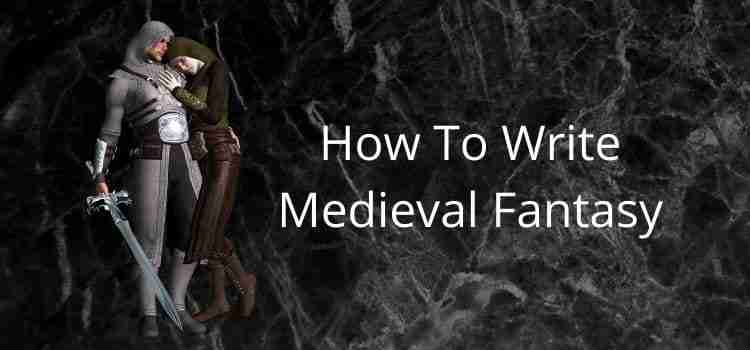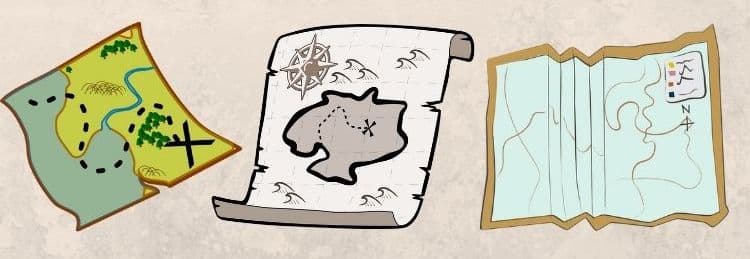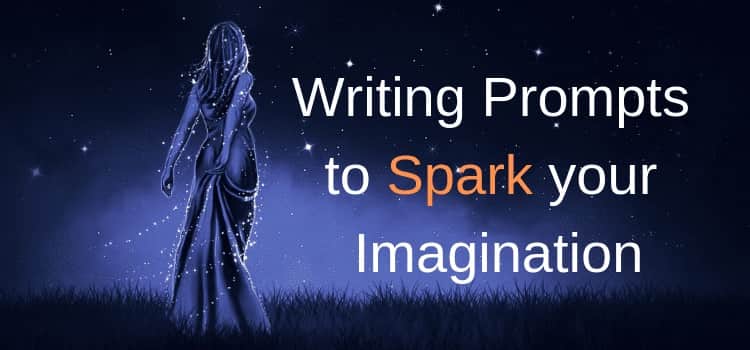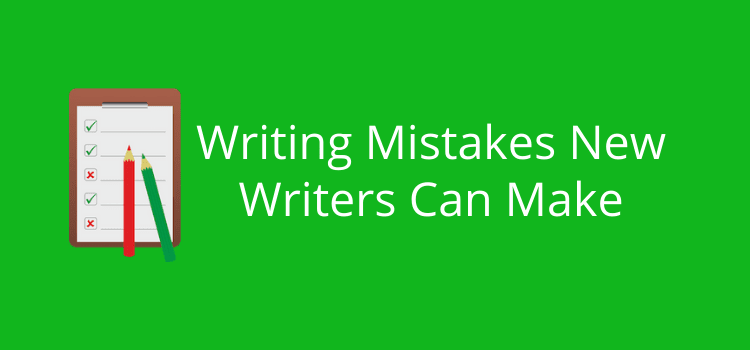
It is a skill for fantasy authors to learn how to write a medieval story with a link between real history and fantasy or paranormal.
Take the fantasy series, A Game of Thrones, for instance.
If you haven’t read the books, you might have watched the movie series.
George R R Martin bases the story on the English War of the Roses between the House of Lancaster and the House of York. The war lasted for 30 years, from 1455 to 1485.
Facts with fiction
While there are factual historical events, there are many differences and elements that make it a fantasy.
You might have an idea like this in mind and would like to write a fantasy novel.
But you are not sure how to blend a fantasy world with a fictional history.
The following tips might help you get on the right track to help you write a medieval story.
Start with your research
Almost all medieval fantasy novels draw their stories from settings and events that are historical.
Most fantasy novels use the backdrop of medieval Europe or Britain.
You would need to move to a later historical period if you wanted to use the US or other newer countries like Australia or Canada.
But, of course, it couldn’t be set in a strictly medieval period.
In either case, your story will be about a real-life historical time or event.
Then you need to combine these different occurrences and events that took place with your fantasy.
You could go to your local library, but there is so much information you can find now on the Internet.
Once you decide on a specific time and place, read everything you can about history at that time.
It will help you keep the world you want to create real and consistent.
You will be writing fantasy, but fiction always needs to make sense and be realistic.
Your choice of setting
When you write a medieval story, you need to start with a mental picture of the setting.
When you are choosing names for the different locations, you need to be creative.
Don’t try to copy or settle for the most obvious names. You could draw a quick fictional map to help you.

Outline the distinct geographical details in each location and start your world building.
Think about what sets one place apart from other regions.
Perhaps you could add a river that flows through a town or a castle that towers above the villages below.
Let your knowledge of the period guide your imagination.
You want to create a world that makes sense and is as real as possible. Maybe you are basing your story in Greece.
Think about what it looked like around your selected time.
Search the Internet for historical information and images to help you imagine what life was like during that period.
The world you create will be the foundation of your story.
You want to make sure it will have a positive impact on your readers.
The role of magic
When you start writing your story, you are probably thinking about including elements of magic, witchcraft, or alchemy in your story.
Maybe there is an isolated area where some of your characters practice magic. At the same time, the rest of the population dares not venture near it.
You could include some mystic elements. Perhaps a river with magical powers. Anyone who drinks from it rapidly becomes older yet much wiser.
You need to define the function of the supernatural elements in your story.
Make a note of how each one affects your storyline and your characters and setting.
You should also decide if you want to base the role of magic on actual historical references during medieval times. Or are you going to create your own fresh ideas?
Whichever way you go, think about how your readers will relate to it within your story’s context.
Presenting your characters
You can get inspiration for your characters from classical historical figures.
In the book, A Song of Ice and Fire, the story takes place in a fictional world in which seasons last for years and end unpredictably.
What figures existed during that time?
A typical figure is the town’s blacksmith or priest. These are often created as grey characters.
They are people who have flaws or a dark side, but they also have positive attributes.
Perhaps an antagonist that, while evil, can occasionally do some good.
Always develop your characters to give them more depth.
Outline the relationships that they have with other characters and also with the rest of your world.
You might also want to include mystical creatures such as fairies, elves, sprites, and goblins.
When you create a non-human race, they should be unique.
Always distinguish one race, or group from the rest by their motivation, beliefs, or customs.
Without variation, your characters could be shallow and unrealistic.
Writing your story
You should always start with an outline of how the plot of the story will play out.
You can use many different methods, but a Snowflake outline is one of the most popular techniques.
It doesn’t have to be overly comprehensive, and it can also change.
But you always need to start strong. The very first sentence has to raise your reader’s curiosity and engage them immediately.
In your plan, use unique descriptions and details of your events, settings, and characters.
Plot out how you will propel the story forward with conflict, both internal and external.
You can achieve this by creating characters on opposing sides but with the same or similar goals.
Their interactions will always brew conflict. Describe the government system in this world. Is it an evil feudal lord, a corrupt king, or an oppressing dictator?
Outline the historical events that influenced the predicament in your story.
Very often, these are related to wars, alliances, or hereditary kings and queens.
Now you are ready to start writing your first draft.
There are many fantasy writing tools to help you on your way.
Summary
When you write a medieval story or novel, it requires you to challenge your imagination and brush up on your history and reality.
Think about Harry Potter and King’s Cross Station, which is a reality. Then there is Platform 9¾, which is fictional and magical.
It is a classic example of combining facts with your fiction.
Writing fiction is a long haul, but with sound research and a great imagination, you can do it.
Related reading: The Best Fiction Story Ideas Often Come From A Simple Question
Share This Article



Great article! Very helpful, thank you!
Thank you. A most useful post.